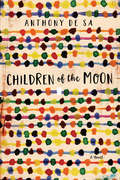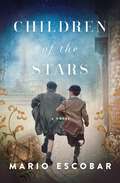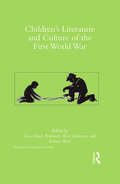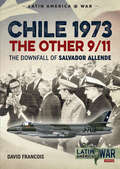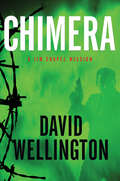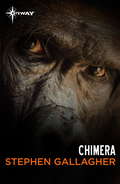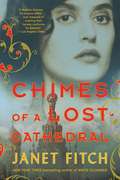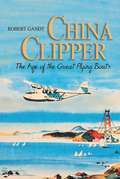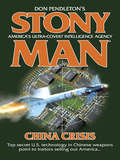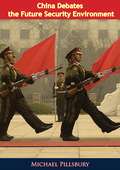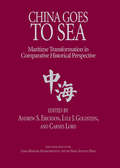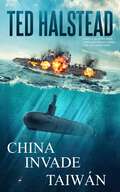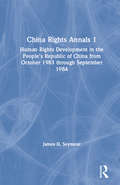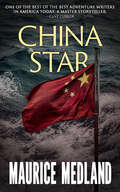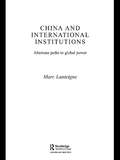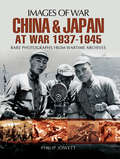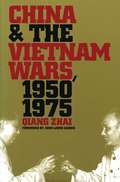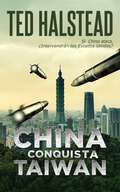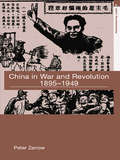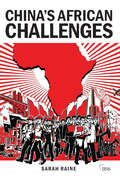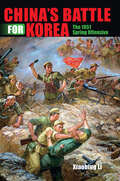- Table View
- List View
Children of the Dust
by Louise LawrenceAfter a nuclear war devastates the earth, a small band of people struggles for survival in a new world where children are born with mutations.
Children of the Moon
by Anthony De SaFrom celebrated author Anthony De Sa comes a raw and compelling novel of love, war and the heartbreaking effects of memory."'You must listen to my words. You must promise to tell my story the way I have shared it with you.'"Tanzania, 1956. A Maasai woman gives birth to a child with albinism. The child is seen as a curse upon her tribe, and so begins Pó's tumultuous story. As Pó navigates the world, she must claim her life in the face of violence and ostracism. Further south, in Portuguese-controlled Mozambique, Ezequiel struggles for acceptance too. Adopted by missionaries, he is not recognized by his Portuguese father's community, or by his Makonde mother's tribe. When civil war erupts, he must choose who to fight for and who to leave behind.Pó and Zeca come together in a time of momentous change. Love connects these two outsiders, forcing them to confront the shattering impact of colonialism and war. Children of the Moon is a stunning and unforgettable exploration of the love of two people at once bound and separated by forces beyond their control.
Children of the Stars
by Mario EscobarFrom international bestselling author Mario Escobar comes a story of escape, sacrifice, and hope amid the perils of the Second World War. August 1942. Jacob and Moses Stein, two young Jewish brothers, are staying with their aunt in Paris amid the Nazi occupation. The boys&’ parents, well-known German playwrights, have left the brothers in their aunt&’s care until they can find safe harbor for their family. But before the Steins can reunite, a great and terrifying roundup occurs. The French gendarmes, under Nazi order, arrest the boys and take them to the Vélodrome d&’Hiver—a massive, bleak structure in Paris where thousands of France&’s Jews are being forcibly detained. Jacob and Moses know they must flee in order to survive, but they only have a set of letters sent from the South of France to guide them to their parents. Danger lurks around every corner as the boys, with nothing but each other, trek across the occupied country. Along their remarkable journey, they meet strangers and brave souls who put themselves at risk to protect the children—some of whom pay the ultimate price for helping these young refugees of war. This inspiring novel, now available for the first time in English, demonstrates the power of family and the endurance of the human spirit—even through the darkest moments of human history. World War II historical fiction inspired by true eventsBook length: 94,000 wordsIncludes discussion questions for reading groups, a historical timeline, and notes from the author &“A poignant telling of the tragedies of war and the sacrificing kindness of others seen through the innocent eyes of children.&” —J&’nell Ciesielski, bestselling author of The Socialite and Beauty Among Ruins
Children's Literature and Culture of the First World War (Children's Literature and Culture)
by Emma Short Lissa Paul Rosemary R. JohnstonBecause all wars in the twenty-first century are potentially global wars, the centenary of the first global war is the occasion for reflection. This volume offers an unprecedented account of the lives, stories, letters, games, schools, institutions (such as the Boy Scouts and YMCA), and toys of children in Europe, North America, and the Global South during the First World War and surrounding years. By engaging with developments in Children’s Literature, War Studies, and Education, and mining newly available archival resources (including letters written by children), the contributors to this volume demonstrate how perceptions of childhood changed in the period. Children who had been constructed as Romantic innocents playing safely in secure gardens were transformed into socially responsible children actively committing themselves to the war effort. In order to foreground cross-cultural connections across what had been perceived as ‘enemy’ lines, perspectives on German, American, British, Australian, and Canadian children’s literature and culture are situated so that they work in conversation with each other. The multidisciplinary, multinational range of contributors to this volume make it distinctive and a particularly valuable contribution to emerging studies on the impact of war on the lives of children.
Chile 1973. The Other 9/11: The Downfall of Salvador Allende (Latin America at War)
by David FrancoisA history of the build-up and the ultimate clash during the Chilean coup of 11 September 1973, featuring over 100 color photos, profiles, and maps.In 1970, Salvador Guillermo Allende Gossens, a physician and leftist politician, was elected the President of Chile. Involved in political life for nearly 40 years, Allende adopted a policy of nationalization of industries and collectivization—measures that brought him on a collision course with the legislative and judicial branches of the government, and then the center-right majority of the Chilean Congress. Before long, calls were issued for his overthrow by force. Indeed, on 11 September 1973, the military—supported by the Central Intelligence Agency (CIA) of the USA—moved to oust Allende, and surrounded La Moneda Palace. After refusing a safe passage, Allende gave his farewell speech on live radio, and La Moneda was then subjected to air strikes and an assault by the Chilean Army. Allende committed suicide.Following Allende’s death, General Augusto Pinochet installed a military junta, thus ending almost four decades of uninterrupted democratic rule in the country. His repressive regime remained in power until 1990.Starting with an in-depth study of the Chilean military, paramilitary forces and different leftist movements in particular, this volume traces the history of the build-up and the ultimate clash during the coup of 11 September 1973.Providing minute details about the motivation, organization and equipment of all involved parties, it also explains why the Chilean military not only launched the coup but also imposed itself in power, and how the leftist movements reactedIllustrated with over 100 photographs, color profiles, and maps describing the equipment, colors, markings and tactics of the Chilean military and its opponents, it is a unique study into a well-known yet much under-studied aspect of Latin America’s military history.“The text is interesting and provides a very readable account and context to what happened and throughout the book, it is well illustrated with archive photos, maps and some fine colour profiles of armoured vehicles and aircraft which modellers in particular will like. I like this series of Latin America at War series from Helion, and have learnt a lot.” —Military Model Scene
Chimera
by David WellingtonA band of genetically modified killers has smashed out of a secret military facility in upstate New York, and Special Forces veteran Jim Chapel gets to puzzle out whether theyre renegades or part of a high-up conspiracy. Author of the "Monster Island" trilogy, serialized online zombie novels, Wellington is currently working toward a degree in Library Science at the Pratt Institute.
Chimera
by David WellingtonAfghanistan veteran Jim Chapel has been enlisted in a new war.This time it's in his own backyard . . . and even more deadly.A small band of fugitives escapes from a secret upstate New York military facility, leaving a trail of bodies in its wake. Each fugitive has a target--an innocent civilian--and will not stop until that target has been eliminated.Wounded Special Forces veteran Jim Chapel has been stuck behind a desk rather than out in the field, but medical technology has finally caught up with his ambitions. Coupled with his unstoppable determination, it will take him back to where he thrives: the thick of the action.Drafted into a new war, this time in our homeland, Chapel is tasked with hunting a group of escapees from a top secret military compound--all extremely deadly, genetically modified killers--and unraveling the mystery behind their existence. Aided by an enigmatic woman named Angel and a courageous, beautiful veterinarian, Chapel begins a cross-country hunt to stop the murders. But are the killers really rogues, or are they part of a sinister conspiracy that reaches into the highest levels?
Chimera
by Stephen GallagherThe novel that inspired the headline-grabbing ITV series starring John Lynch, Kenneth Cranham, and Christine Kavanagh. A terrifyingly plausible journey into the disturbing nerve-centers of medical science where our secret future is formed today.When Peter Carson is invited to the pioneering Jenner Clinic by one of the lab assistants, he's naturally intrigued. But when he arrives at the remote site in the Cumbrian fells to find police roadblocks and official silence, he realises that he's stumbled onto a story that will do him no good at all.Dr Jenner's work matters to the government. Enough to warrant unlimited funding, high security, and the best technicians in the country. But something has gone badly wrong. The project that has no room for mistakes has produced a result so terrible that it must never see the light of day. And now the evidence must be destroyed, whatever the cost.
Chimera (The Subterrene War #3)
by T. C. MccarthyEscaped Germline soldiers need to be cleaned up, and Stan Resnick is the best man for the job. A job that takes him to every dark spot and every rat hole he can find.Operatives from China and Unified Korea are gathering escaped or stolen Russian and American genetics, and there are reports of new biological nightmares: half-human things, bred to live their entire lives encased in powered armor suits.Stan fights to keep himself alive and out of prison while he attempts to capture a genetic, one who will be able to tell them everything they need to know about this new threat, the one called "Project Sunshine."Chimera is the third and final volume of The Subterrene War Trilogy which tells the story of a single war from the perspective of three different combatants. The first two volumes GERMLINE and EXOGENE are available now.
Chimes of a Lost Cathedral (Revolution of Marina M. #2)
by Janet FitchThe story of The Revolution of Marina M. continues in bestselling author Janet Fitch's sweeping epic about a young woman's coming into her own against the backdrop of the Russian Revolution.After the events of The Revolution of Marina M., the young Marina Makarova finds herself on her own amid the devastation of the Russian Civil War---pregnant and adrift in the Russian countryside, forced onto her own resourcefulness to find a place to wait out the birth of her child. She finds new strength and self-reliance to fortify her in her sojourn, and to prepare her for the hardships and dilemmas still to come.When she finally returns to Petrograd, the city almost unrecognizable after two years of revolution, the haunted, half-emptied, starving Capital of Once Had Been, she finds the streets teeming with homeless children, victims of war. Now fully a woman, she takes on the challenge of caring for these civil war orphans, until they become the tool of tragedy from an unexpected direction. But despite the ordeal of war and revolution, betrayal and privation and unimaginable loss, Marina at last emerges as the poet she was always meant to be. Chimes of a Lost Cathedral finishes the epic story of Marina's journey through some of the most dramatic events of the last century---as a woman and an artist, entering her full power, passion, and creativity just as her revolution reveals its true direction for the future.
China Clipper
by Robert GandtWhen the China Clipper shattered aviation records on its maiden six-day flight from California to the Orient in 1935, the flying boat became an instant celebrity. This lively history by Robert Gandt traces the development of the great flying boats as both a triumph of technology and a stirring human drama. He examines the political, military, and economic forces that drove its development and explains the aeronautical advances that made the aircraft possible. To fully document the story he includes interviews with flying boat pioneers and a dynamic collection of photographs, charts, and cutaway illustrations.
China Crisis
by Don PendletonWhen a Chinese test missile crashes inside the Afghan desert, a conspiracy of global proportions explodes. The missile is fitted with stolen American technology and Beijing will be caught in diplomatic crosshairs unless they can retrieve the hardware. A Stony Man team is dispatched to get it first--and bring tough justice to the shadow organization deep within the U. S. government selling America's biggest military secret to the world.
China Debates the Future Security Environment
by Michael Pillsbury National Defense UniversityThis study offers over 600 selected quotations from the writings of over 200 Chinese authors published from 1994 to 1999. Analysis and interpretation are kept to a minimum so that the Chinese may speak for themselves. Many Chinese scholars assisted with this study by providing hard-to-get books and articles unfamiliar to most Westerners. Half the authors were interviewed in China. They explained some of the viewpoints in recent debates about the future security environment. Debates in China are generally concealed, and frequently authors pretend they do not exist. However muted they may be, China's debates about the future nevertheless exist and merit attention if we are to understand the premises of China's national strategy and set a baseline from which to measure any future change in these premises.
China Goes to Sea
by Goldstein Lyle J Andew S. EricksonChina's turn toward the sea is evident in its stunning rise in global shipbuilding markets, its expanding merchant marine, its wide reach of offshore energy exploration, its growing fishing fleet, and its increasingly modern navy. This comprehensive assessment of China's potential as a genuine maritime power is both unbiased and apolitical. Unlike other works that view China in isolation, it places China in a larger world historical context. The authors, all authorities on their historical eras, examine cases of attempted maritime transformation through the ages, from the Persian Empire to the Soviet Union, and determine the reasons for success or failure.
China Invade Taiwan: AGENTES RUSOS LIBRO 6 (AGENTES RUSOS #6)
by Ted HalsteadDescripción del libro: Después de que China lance su ataque contra Taiwán, Estados Unidos responderá. Pero ¿hasta dónde llegará Estados Unidos para mantener a Taiwán fuera del control de Beijing? Estados Unidos tendrá que utilizar sus bases en Japón. ¿Estará Japón preparado para participar en combate por primera vez desde la Segunda Guerra Mundial? Rusia quiere ganar dinero vendiendo equipos, armas y combustible a la maquinaria de guerra china. Pero si China gana en Taiwán, ¿se detendrá allí? ¿O empezará a prestar atención a la frontera de más de 4.000 kilómetros de longitud que comparte con Rusia? La invasión china de Taiwán también podría fracasar gracias a los estadounidenses. ¿Aceptará entonces China tranquilamente la derrota? ¿O utilizará sus armas nucleares para castigar a Estados Unidos por intervenir? Si estalla una guerra nuclear entre Estados Unidos y China, ¿podrá Rusia permanecer al margen? Esta vez, ni siquiera los agentes más capaces de Rusia podrían ser capaces de salvar a su país del desastre.
China Rights Annals: Human Rights Development in the People's Republic of China from October 1983 Through September 1984
by James D. SeymourBased on four visits by the journalist author to China from 1971 to 1989. He details the horrors of the Japanese Army's seizure and capture of Nanjing in December 1937. The harrowing testimony of the Chinese victims and the Japanese perpetrators are juxtaposed with PR army announcements.
China Sea (A Dan Lenson Novel #6)
by David PoyerDavid Poyer's cycle of modern Navy tales ranks among the finest nautical fiction of our time. With CHINA SEA, his self-doubting protagonist Daniel V. Lenson faces for the first time the unforgiving challenge of command at sea. Ordered to relieve an alcoholic skipper, Dan finds he has inherited a damaged ship, an untrustworthy crew, and an ambiguous mission. He is to take the USS Oliver C. Gaddis, soon to become the PNS Tughril, on her final voyage to be donated to Pakistan. But in Kirachi, Dan gets new orders: take Gaddis still further east, and operate against modern pirates preying on commercial shipping in the remote, dangerous South China Sea. Pursuing an elusive and shadowy foe into an exotic, isolated world of hazardous reefs and tropical islands, Dan gradually discerns a larger purpose behind his supposed objective. Who are these "pirates?" What expansionist cunning supports them? Abandoned by the Navy, threatened by a mutinous crew, a murderous shipmate, and an approaching typhoon, Gaddis struggles to survive without crossing the shadow-line herself.
China Star
by Maurice MedlandAn ex-navy officer performs a daring sea rescue in this international thriller from &“one of the best adventure writers today. A master storyteller.&” (Clive Cussler, #1 New York Times–bestselling author of the Dirk Pitt adventure series) When Elizabeth Grayson stumbles upon confidential intel while doing medical research in China, her quiet life turns to terror. Imprisoned in a labor camp on an isolated island, the senator&’s daughter struggles with her horrifying new knowledge that China is planning an attack against the United States. Worse, scientific advances in her own work may have helped make China&’s powerful new weapon against America possible. Matt Connor&’s location on a salvage boat in the Pacific Ocean may have landed him the lucrative job of rescuing a politician&’s daughter from prison, but once the ex-navy officer has Elizabeth Grayson on his ship, he&’s bound with her in a deadly game of survival. With the Chinese government determined to launch a weapon of mass destruction before their secret offensive is revealed, both Matt and Elizabeth&’s lives are on the line—along with the fate of the American people. &“. . . a thrilling novel of international intrigue . . . A tense and riveting adventure from cover to cover.&” —Midwest Book Review
China and International Institutions: Alternate Paths to Global Power (Asian Security Studies)
by Marc LanteigneChina has shifted its foreign policy from one that avoided engagement in international organizations to one that is now embracing them. These moves present a new challenge to international relations theory. How will the global community be affected by the engagement of this massive global power with international institutions? This new study explores why China has chosen to abandon its previous doctrine of institutional isolation and details how it is currently unable to balance American power unilaterally and details an indirect path to greater power. In addition, it includes the first major analysis of the Shanghai Cooperation Organization, comprising China, Russia and most of Central Asia. In contrast to many works on the "rise of China" question, which place an emphasis on her material goods and powers, this book delivers a new approach. It shows how the unique barriers Beijing is facing are preventing the country from taking the traditional paths of territorial expansion and political-economic domination in order to develop as a great power. One of these barriers is the United States and its inherent military and economic strength. The other is the existence of nuclear weapons, which makes direct great power conflict unacceptably costly. China has therefore opted for a new path, using institutions as stepping stones to great power status. This book will be of great interest to students and scholars of international relations, world politics, world history and Asia.
China and Japan at War, 1937–1945 (Images of War)
by Philip JowettThis pictorial history of the Sino-Japanese War offers a rare look at one of the most important yet neglected aspects of WWII. The 1937-1945 war between China and Japan was one of the most bitter conflicts of the twentieth century. It was a struggle between the two dominant peoples of Asia. Millions of soldiers fought on each side and millions of soldiers and civilians died. Philip Jowett's book is one of the first photographic histories of this devastating confrontation. Using a selection of almost 200 historic photographs, he traces the course of the entire war from the Japanese invasion and the retreat of the Chinese armies and their refusal to surrender, to the involvement of the Americans and the eventual Japanese defeat in 1945. Jowett&’s graphic account is an absorbing introduction to this often-overlooked theatre of the Second World War. The images show the armies on all sides and the weaponry and equipment they used. But they also record the experience of the troops, Chinese and Japanese, and of the Chinese civilians who suffered terribly through eight years of war.
China and the Vietnam Wars, 1950-1975
by Qiang ZhaiIn the quarter century after the founding of the People's Republic of China in 1949, Beijing assisted Vietnam in its struggle against two formidable foes, France and the United States. Indeed, the rise and fall of this alliance is one of the most crucial developments in the history of the Cold War in Asia. Drawing on newly released Chinese archival sources, memoirs and diaries, and documentary collections, Qiang Zhai offers the first comprehensive exploration of Beijing's Indochina policy and the historical, domestic, and international contexts within which it developed.In examining China's conduct toward Vietnam, Zhai provides important insights into Mao Zedong's foreign policy and the ideological and geopolitical motives behind it. Throughout the 1950s and 1960s, he shows, Mao considered the United States the primary threat to the security of the recent Communist victory in China and therefore saw support for Ho Chi Minh as a good way to weaken American influence in Southeast Asia. In the late 1960s and 1970s, however, when Mao perceived a greater threat from the Soviet Union, he began to adjust his policies and encourage the North Vietnamese to accept a peace agreement with the United States.
China conquista Taiwán: Los Agentes Rusos: Libro 8 (Los Agentes Rusos #8)
by Ted HalsteadSi China utiliza su arsenal para arrollar las defensas de Taiwán, ¿valdrá la pena apoderarse de lo que quede? El líder de China ha decidido que la respuesta es: sí. En una guerra a tal escala, ¿podrán los agentes rusos marcar la diferencia? Sus órdenes son hacerlo o morir en el intento. Los presidentes estadounidenses han dicho desde 2022 que defenderían a Taiwán si fuera atacado por la República Popular China. Pero ¿hasta dónde llegará Estados Unidos para cumplir esa promesa? ¿A la guerra nuclear? ¿Ayudará Japón a defender Taiwán? ¿Y los otros aliados de Estados Unidos en la región, como Australia y Corea del Sur? Independientemente de cómo termine la guerra, será el mayor conflicto armado desde la Segunda Guerra Mundial. Y podría desencadenar la Tercera.
China in War and Revolution, 1895-1949 (Asia's Transformations #Vol. 1)
by Peter ZarrowProviding historical insights essential to the understanding of contemporary China, this text presents a nation's story of trauma and growth during the early twentieth century. It explains how China's defeat by Japan in 1895 prompted an explosion of radical reform proposals and the beginning of elite Chinese disillusionment with the Qing government. The book explores how this event also prompted five decades of efforts to strengthen the state and the nation, democratize the political system, and build a fairer and more unified society.Peter Zarrow weaves narrative together with thematic chapters that pause to address in-depth themes central to China's transformation. While the book proceeds chronologically, the chapters in each part examine particular aspects of these decades in a more focused way, borrowing from methodologies of the social sciences, cultural studies, and empirical historicism. Essential reading for both students and instructors alike, it draws a picture of the personalities, ideas and processes by which a modern state was created out of the violence and trauma of these decades.
China's African Challenges (Adelphi series)
by Sarah RaineChina’s relations with African nations have changed dramatically over the past decade. African oil now accounts for more than 30% of China’s oil imports, and China is Africa’s second-largest single-country trading partner, as well as a leading lender and infrastructure investor on the continent. Yet these developments are bringing challenges, not only for Africa and the West, but for China as well. This book examines these challenges, considering Africa as a testing ground, both for Chinese companies ‘going global’ and for a Chinese government that is increasingly having to deal with issues beyond its shores and immediate control. What does China need to do to protect and develop its African engagements, against a backdrop of mounting African expectations, concerns from Western actors in Africa, and the rival presence of other emerging actors? How sustainable is the momentum that China has established in its African ventures? China’s adaptations to the challenges it is facing in Africa are examined and assessed, as are the implications of these changes for China, Africa and the West. China’s African engagements are certainly changing Africa, but could they also be changing China?
China's Battle for Korea: The 1951 Spring Offensive (Twentieth-century Battles Ser.)
by Xiaobing LiBetween November 1950 and the end of fighting in June 1953, China launched six major offensives against UN forces in Korea. The most important of these began on April 22, 1951, and was the largest Communist military operation of the war. The UN forces put up a strong defense, prevented the capture of the South Korean capital of Seoul, and finally pushed the Chinese back above the 38th parallel. After China's defeat in this epic five-week battle, Mao Zedong and the Chinese leadership became willing to conclude the war short of total victory. China's Battle for Korea offers new perspectives on Chinese decision making, planning, and execution; the roles of command, political control, and technology; and the interaction between Beijing, Pyongyang, and Moscow, while providing valuable insight into Chinese military doctrine and the reasons for the UN's military success.

